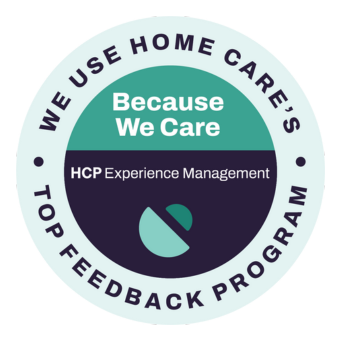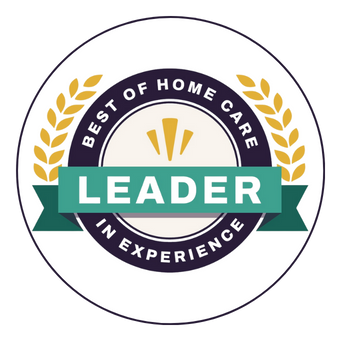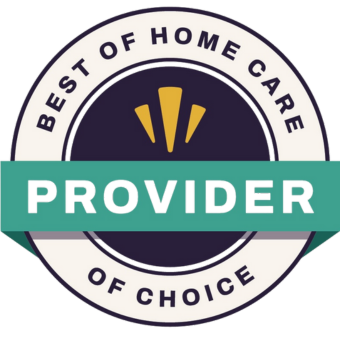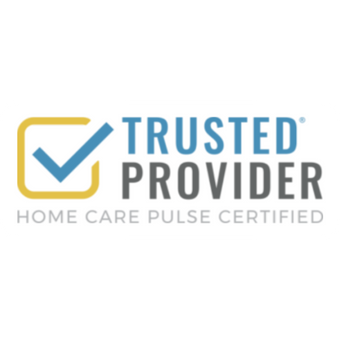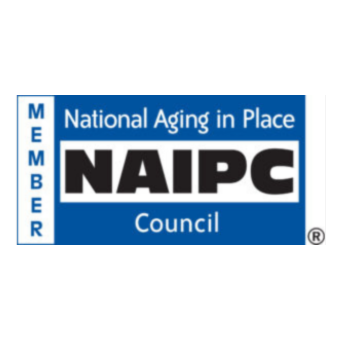As an in-home caregiver in a community like Raleigh, your clients rely on you and fellow team members to deliver high-quality care and support. Home care professionals, including caregivers, schedulers, supervisors, and others, must collaborate efficiently to ensure care recipients and their families receive the assistance they need. Is your home care team collaborating effectively? Read on to explore essential team-building tips and strategies every in-home caregiver should know.
Home Care Teams Often Include These Members
The average home care team is comprised of various professionals working together to provide nonmedical care and support to clients and families. Certified nursing assistants and personal care aides are at the team’s forefront, providing direct care to clients with various activities of daily living (ADLs). These caregivers work closely with clients to ensure their physical, emotional, and social needs are met.
As essential home office staff, schedulers play a critical role in coordinating care schedules and ensuring clients receive the appropriate level of support at the proper time. These professionals work closely with caregivers to allocate shifts, coordinate home visits, and communicate changes in care plans.
Supervisors, typically registered nurses (RNs), oversee the day-to-day operations of the home care team, providing guidance and support to caregivers and schedulers. These professionals are responsible for monitoring the quality of care provided, addressing issues that may arise, and ensuring that all team members work together synergistically to meet client needs.
Additional team members may include physical therapists, occupational therapists, speech therapists, medical social workers, and other healthcare professionals who provide specialized care and support to clients as needed. Together, these professionals form a cohesive team that works collaboratively to provide holistic care to clients and their families.
Why is Home Care Team Collaboration So Important?
Effective collaboration among home care team members is essential for ensuring clients and family caregivers receive the best care and support possible. When team members work together seamlessly, they can provide coordinated, comprehensive care that meets each client’s unique needs and preferences.
Collaboration also helps improve communication among team members, allowing for information sharing, problem-solving, and decision-making that benefits clients. When team members are on the same page and working towards common goals, they can better address issues, prevent problems, and provide timely, appropriate responses that enhance the care experience.
Conversely, when care team members fail to collaborate effectively, it can lead to gaps in care, confusion, and misunderstandings that impact the quality of care provided. Clients may not receive the support they need, and issues may go unresolved, putting their health, well-being, and independence at risk.
Collaboration Essentials: Team-Building Tips and Strategies for Home Care Professionals in Raleigh
When you’re part of any caregiving team, including home care, here’s how to ensure that your clients receive the care and support they deserve:
Communicate Effectively
Open, honest communication is key to successful collaboration within home care teams. Team members should communicate regularly, share important information, and promptly address any concerns or issues that arise. Establishing clear communication channels and protocols helps ensure everyone is on the same page and working towards common goals.
Respect Each Other’s Expertise
As was pointed out earlier, home care teams include professionals with diverse skills and knowledge. For that reason, it is vital to respect and value each team member’s expertise and contributions. Recognizing and leveraging each team member’s strengths can lead to better outcomes for clients and improve overall team morale.
Establish Clear Roles and Responsibilities
Clearly defining roles and responsibilities within the home care team helps prevent confusion and ensure that everyone knows what is expected of them. Establishing expectations upfront and providing ongoing feedback and support can help team members feel more confident in their roles and work more effectively together.
Promote a Positive Team Culture
Creating a positive team culture based on trust, respect, and collaboration is essential for building a strong home care team Encouraging teamwork, celebrating successes, and supporting each other through challenges can foster a sense of unity and camaraderie among team members.
Support Diversity and Inclusion
Home care teams are often made up of individuals from diverse backgrounds and with different experiences. Embracing diversity and inclusion within the team can lead to richer collaboration, creativity, and innovation. Encourage team members to share their perspectives, ideas, and feedback to drive continuous improvement and better outcomes for clients.
Practice Active Listening
Effective collaboration requires active listening–-taking time to fully understand and consider others’ perspectives, ideas, and concerns. Listening attentively to fellow team members helps build trust, improve communication, and promote a culture of collaboration and mutual respect.
Seek Feedback and Continuous Improvement
Encourage open feedback and constructive criticism among team members to foster a culture of continuous improvement. By seeking input from all team members and reflecting on ways to enhance teamwork and collaboration, home care professionals can work together more effectively to provide the best care possible for clients.
Final Thoughts About Team Collaboration Tips for Home Care Professionals
As more than just a buzzword, collaboration is the foundation of any successful home care team. By working together effectively, home care professionals can deliver personalized, holistic care that meets the diverse needs of clients and their families. Embracing open communication, respecting each other’s expertise, and fostering a positive team culture empowers home care professionals to build stronger teams, ultimately providing exceptional care and support to aging, ill, and disabled individuals.
Home Care Professionals Wanted to Join Our Winning Team in Raleigh
Whether you are new to the home care game or a seasoned pro, HomeChoice Home Care Solutions in Raleigh would love to speak with you. At HomeChoice Home Care Solutions, we understand that our caregivers are the lifeblood of our organization. Due to our expanding client load, we are currently seeking qualified candidates to fill several exciting caregiving roles. While proudly serving the Raleigh, Durham, Wake County, Johnston County, Wake Forest, Chapel Hill, and North Carolina communities, we support clients and families with a comprehensive lineup of dignified home care services including Companionship Care, Personal Care, and Respite Care.
As a highly valued member of the HomeChoice Home Care Solutions team, you’ll enjoy a fast-paced, positive work environment where open communication and teamwork are valued and hard work is rewarded. We also offer competitive pay, flexible scheduling, ongoing caregiver skills training, and career advancement opportunities galore. No matter your experience level or education, we’d love to hear from you! To learn more about us and how we support our home care professionals, visit www.homechoicehomecare.com.







